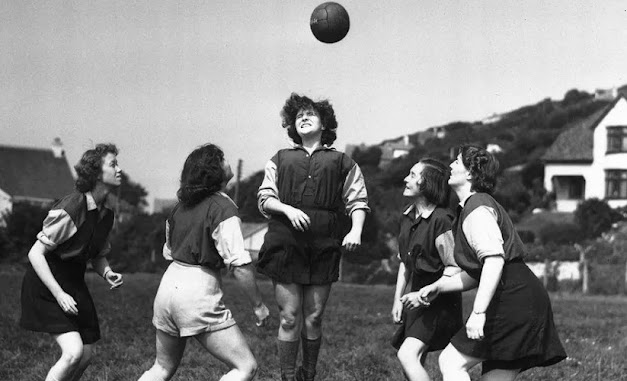From Grassroots to Glory: The Evolution of Women's Football
Introduction:
Football, once considered a male-dominated sport, has witnessed a remarkable transformation over the years with the rise and evolution of women's football. From humble beginnings to global recognition, the journey of women's football has been one of determination, resilience, and breaking down barriers. In this blog, we explore the captivating evolution of women's football, from its early struggles to the current surge in popularity and recognition.
Early Struggles and Pioneering Spirits:
The roots of women's football can be traced back to the late 19th and early 20th centuries when women started participating in informal matches. However, the sport faced significant opposition and challenges during its formative years. Cultural norms, societal expectations, and even outright bans hindered the progress of women's football in many countries. Despite these obstacles, pioneering spirits emerged, refusing to let their passion be extinguished. Women organized their own matches, formed teams, and advocated for their right to play the beautiful game.
The Rise of International Competitions:
 |
| 1970, the first unofficial Women's World Cup |
The breakthrough for women's football came with the establishment of international competitions. In 1970, the first unofficial Women's World Cup was held in Italy, paving the way for the eventual recognition and growth of the sport. The formation of FIFA's Women's World Cup in 1991 and the introduction of the UEFA Women's Championship in 1984 marked significant milestones in women's football, providing platforms for female players to showcase their skills on a global stage.
Professionalization and Global Growth:
In recent decades, women's football has witnessed a remarkable surge in popularity, professionalization, and investment. Increased media coverage, sponsorship deals, and improved infrastructure have played pivotal roles in transforming the landscape of the game. The establishment of professional leagues, such as the FA Women's Super League in England and the National Women's Soccer League in the United States, has provided a stable foundation for female players to develop their careers and compete at a high level.
Breaking Records and Shattering Stereotypes:
 |
| Marta Vieira da Silva |
The rise of prominent female footballers has played a crucial role in elevating the status of women's football. Players like Mia Hamm, Marta Vieira da Silva, Abby Wambach, and many others have become household names, captivating fans worldwide with their skill, determination, and love for the game. Their accomplishments, including record-breaking goal-scoring feats and individual accolades, have shattered stereotypes and inspired generations of aspiring female footballers.
Fighting for Equality and Empowerment:
While significant progress has been made, women's football continues to face challenges in terms of pay parity, infrastructure, and media coverage. However, athletes, advocates, and governing bodies are increasingly focused on addressing these disparities. Initiatives promoting gender equality, equal pay campaigns, and increased investment in women's football are paving the way for a more inclusive and equitable future.
Inspiring Generations and Leaving a Lasting Legacy:
Women's football has become a powerful force in inspiring young girls and challenging traditional gender norms. The visibility and success of female footballers have opened doors and created opportunities for aspiring players worldwide. Grassroots programs, community initiatives, and the integration of women's football into school curricula are further contributing to the growth and development of the sport at all levels.
Conclusion:
The evolution of women's football is a testament to the unwavering spirit and determination of female athletes worldwide. From its early struggles and pioneering efforts to its current rise in popularity and recognition, women's football has defied expectations and shattered barriers. As the sport continues to grow, it serves as a catalyst for empowerment, equality, and social change. The future of women's football holds tremendous promise, and as more individuals embrace the game, it will undoubtedly continue to captivate hearts and inspire generations








O o bhai bhai...
ReplyDelete